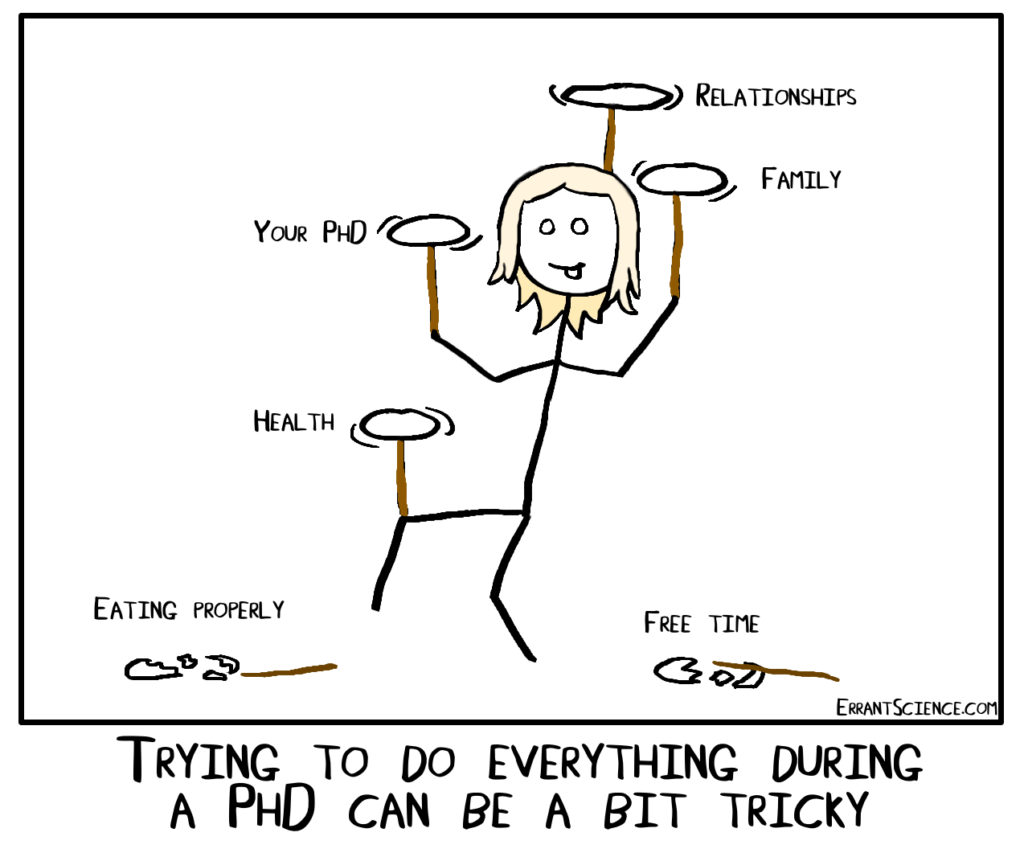It is easy to survive, but difficult to grow in grad school. When I started my graduate career as a grad student, for a long time I was very clueless about different aspects of my grad life. For example, I had hard times to select the right courses at the beginning. I found it challenging to identify which field I would like to carry my research on. And foremost, though I got lucky, I was really confused when I choose a faculty member to be my graduate advisor. That was the hardest decision to make. At that time, I had very little information or guidance. In this article, I have tried to discuss some important facts that are very crucial for attaining success in grad life.
Consult before course registration:
Don’t rush for registering the courses. As a part of the requirements, one need to complete certain credits of coursework for their degrees. In general, there are some mandatory courses and rest are optional courses. Other than the mandatory courses, you should only take those courses which will somewhat be related to your research work. Graduate level courses require more time from your daily hours. It also slows down your research work. So talk to your advisor before registering for courses. You can also talk to other grad student in your lab or in your department who started earlier, and can give you some suggestions about which course you should take.

Find the right supervisor for you:
Once you have started your classes, your next task is to find a research supervisor who will supervise your MS or PhD thesis. Most of the PhD students start their grad life as an research assistant (RA), and they mostly know in which field they will be working on. However, students who get teaching assistant (TA), both MS or PhD, usually have the 1st semester (for MS students)/1 year (PhD students) to find a research supervisor. As a responsible grad student, you should start your hunt from day one.
So how to start your hunting?
First of all, do a little research on the research work of the current faculties — go through their web page, learn about their ongoing research work and previously completed projects, talk to their existing students who are working for them. The student members of any research group know about any potential opening in their research group. And, also try to get a feedback about any individual professor. Assuming that, you have done your homework, and now try to meet them on person during their office hours. And, tell them you are interested to work with him/her.
Perhaps you can mention one or two of his recent papers that you read, or you just tell him/her that you want to work on X/Y/Z project. Even if s/he does not have any paid position, tell them you will work voluntarily. I know it’s hard to keep yourselves motivated when you are not get paid, but eventually you will be offered a paid position in future. Don’t just sit back in the lab for the next email from the professor. Study the recent findings about the relevant research work from other research groups, tell your professor about your idea, discuss them. Professors expect that as a grad student you will learn everything by yourself, s/he is there just to guide you.

Be friend with others:
Keep a good relations with your group members. You need to be in harmony with everyone in your workplace. You will often need the help of your group members regarding your research, coursework etc. So, help them to get help.
Attend all the graduate seminars that are relevant to your track. Sometimes we often neglect those seminars or end up attending only for percentage. You will find some interesting talks, have some new insights for your own research from those presentations.
Attend as many as conferences as you can:
Go for conferences — give poster or oral presentation if you can. Even if you have funding issues from your research group, you can apply for departmental funding or funding from some other sources from your school which will help you to cover the costs. Apply for it, get fund and go for conferences.
Build up a good reading habit:
Read, Read and Read. As a grad student, you need to build a consistent habit of reading papers. Read them and print those that seems useful to your research. For example, if you build a reading habit of reading at least 2 papers per week, then over a year you will finish reading at least 96 papers. If you document your reading properly, then by the final year of your PhD you will probably end up reading at least 400 papers. This will boost your knowledge and help you to build a very strong foundation about your field. While reading please use notetaking software such as OneNote to document the papers. Note down the important information in your notebook so that when you will write any paper and thesis, you have all the relevant literatures at your hand. Else, you will need to find those relevant papers again when you will be writing your thesis.

Build a strong foundation in Math:
Regardless of your research domain, if you want to be a good scientist you should invest time in building a strong foundation in math. At least learn to solve ordinary and partial differential equations (ODE & PDE). The best thing you can do that you can take a math course in your first semester. Even if you do pure experimental work, you will need to learn the theory behind it, and often you will encounter equations and mathematical models. So, if you have a good grip over equations, it will be easier for you grasp that knowledge. A grad student should excel at math, there is no other way around.
Learn to code:
Develop your coding skills from day 01. People who does theoretical or modelling based work, having a strong coding skill is must. If you do experimental work, you will need to do some sort of modelling based work which requires extensive coding in MATLAB or Python. So, you should always learn coding. Learn the basic syntax, at least you should be able to run loops, write functions, matrix manipulations and some basic data fitting procedures.
Plan for the first semester:
The first semester in any school is way more difficult to survive, so plan for it. Take easy courses, don’t rush for grad level courses unless your academic advisor or research supervisor (if you have RA from the 1st semester) ask for it. Grad level courses require some per-requisites which are mostly taught during the later years of the undergrad studies. If you don’t feel comfortable at the very 1st stage, it is better not to take the grad level course in the 1st semester. However, if your professor offer any grad level course, then you might consider taking it.
At least, you will get some extra care from your professor, s/he will suggest you some extra readings and you will have more chances to discuss with him/her on different concepts. To brush up your undergrad studies, you might go through the book or if you have time to follow lectures then you can find them in YouTube. I have found a very good YouTube channel which is a joint effort from IIT and ISC for education Indian Students. The quality of the lectures is world class, though some of you might not like the accent.
Make a career plan from the beginning:
Plan for your career — will you go for Industry or go for Academia? If you are planning to go for industry, then you must look for internship during the summer. There are certain fields in which jobs are more available than others e.g. control and system engineer. In some field, you will not get a job as an international student without getting a PhD e.g. material science. So plan accordingly. If you plan for academia, then you have to focus on your research work — work on as many as projects you can. Go to conferences, publish your papers. You should find a research intern in some national lab or any other research center.
Grow your network:
Finally, build your connections. Contact with the alumni from your research group while you are looking for job. Whenever you go to conferences talk to professionals, and talk to professors from big research groups — it will help you to find a Post Doc position once you are done with your PhD. In conferences, different companies come for their exhibition, you can talk with them and get their contacts. In some conferences, you will also find career events, where companies come to hire student researcher.
This is a general to do list that i have prepared from my own experience, even though some of the points that wrote i could not realize how important those were when i started grad school. So, don’t waste your opportunities and make your plan ahead.
Disclaimer: No A.I. was used to generate any portion of this content.


Pingback: How to be a Productive PhD Student? - gradbunker.com